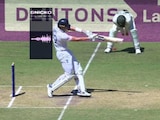Gregory Wochos et al v. Tesla Inc. et al
Case #17-CV-05828
The Origin
In 2017, Gregory Wochos, a clinical neuropsychologist in Wisconsin, owned a very pricey stock: Tesla. The company was losing hundreds of millions of dollars every quarter, but Wochos and other investors believed fervently that Chief Executive Officer Elon Musk was on the verge of producing an electric car for the masses. Indeed, the Model 3 was already in production. Musk-and Tesla-promised the world that the company would soon churn out 5,000 a week. No wonder the stock was up 84% in the first nine months of 2017!
The Suit
Uh-oh. On Oct. 2, Tesla reported that it had manufactured only 260 Model 3s in the third quarter of the year. It blamed the problem on "production bottlenecks." The stock dropped 3.91%. Within days, Wochos filed a class action in the U.S. District Court for the Northern District of California against Tesla, Musk, and two other top executives at the company, alleging that they'd made "materially false and misleading statements." In other words, Wochos was suing Musk-Elon Musk!-for (allegedly) exaggerating.
The Issue
It used to be a snap for plaintiffs' lawyers to extract money from a company when its stock dropped suddenly. But in 1995, Congress passed a "safe harbor" law that allowed companies leeway to make forward-looking statements-even if they turned out to be wrong-as long as the statements included cautionary language. Thus, Wochos's lawsuit revolved around a simple question: Had Tesla and Musk-Elon Musk!-been cautious enough?
The Outcome
Are you sitting down? In August 2018, less than three weeks after Musk sent a now infamous tweet claiming he had the funding to take Tesla private, U.S. District Judge Charles Breyer ruled that Musk and Tesla had been cautious enough. "Federal securities laws do not punish companies for failing to achieve their targets," he wrote. Wochos refiled but lost again. On Jan. 26, 2021, the suit ended with the 9th Circuit Court of Appeals agreeing with Breyer. As for Wochos, let's hope he held on to his stock. Since that little glitch in late 2017, Tesla is up more than 1,000%.
- Other suits? In its 2020 annual report, Tesla cites seven cases filed over its 2016 acquisition of SolarCity Corp. and nine class actions and six derivative suits filed over Musk's tweet. Yet another lawsuit claims the CEO's stock-based compensation is an example of "corporate waste" and "unjust enrichment." A trial is set for this summer.
- Can plaintiffs still get money from securities class-action settlements? Yes. Data from Stanford Law School show that just in the Southern District of New York, plaintiffs have recovered more than $104 billion in 2,584 settlements since the 1995 law went into effect. Still, 2,768 cases have been dismissed. So it's doable, but not easy.















